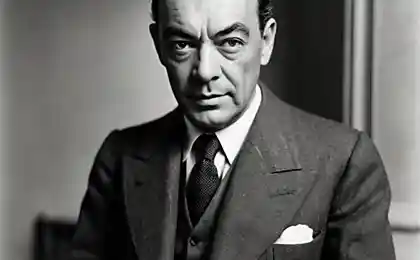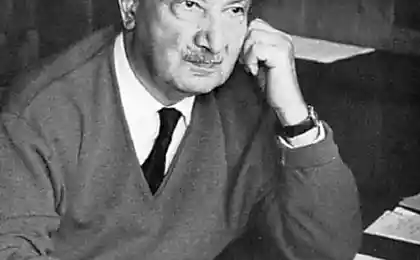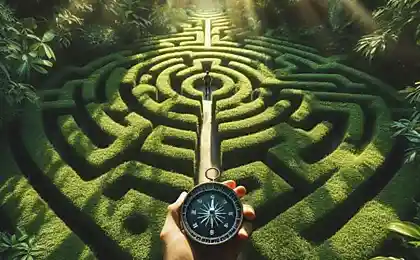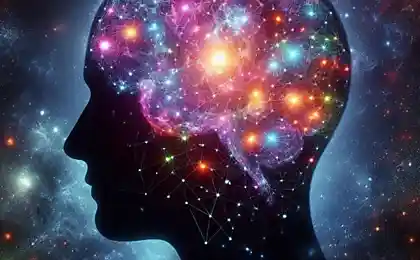200
10 Signs You Have High Existential Intelligence
The inner depth that manifests itself in every action

In 1983, psychologist Howard Gardner introduced the multi-intelligence theory to the world, which upended ideas about human abilities. Among the eight types of intelligence he identified, a special place is occupied by existential intelligence – the ability to ask deep questions about the meaning of life, death and reality.
People with high existential intelligence have a unique ability to see the world from a special angle. They don’t just exist – they consciously live each moment, understanding its connection with the big picture of being. It is not an academic abstraction, but a living force that shapes their worldview and influences every decision they make.
What is existential intelligence
Existential intelligence is the ability of a person to reflect on the fundamental questions of existence. This is not just a philosophical inclination, but a special cognitive skill that allows a person to:
Awareness of your place in the universe Understand how personal actions fit into the broader context of human experience and cosmic order.
Existential intelligence is a bridge between the inner world of man and the infinite questions that life poses to us.
Studies show that people with advanced existential intelligence exhibit higher rates of psychological well-being and life satisfaction. They are better at managing crises and have a more sustainable value system.
10 Signs of High Existential Intelligence
The constant search for meaning
You regularly ask the question “Why?” about your actions and life in general. It is not a disturbing reflection, but a natural need to understand the underlying motives of one’s existence. You seek meaning not only in life’s big decisions, but also in everyday moments.
Practical advice: Keep a journal of meanings – write down what gives meaning to your days. This will help identify patterns and strengthen your connection to your core values.
Comfort with uncertainty
You don’t feel uncomfortable because you can’t get all the answers. Instead, you see uncertainty as a space for growth and discovery. This does not mean passivity—you actively explore the unknown, but accept it as a natural part of the human experience.
Deep self-knowledge
You invest time and energy in understanding your motives, fears, desires and contradictions. This is not narcissistic self-admiration, but an honest exploration of one’s inner nature. You understand how your past experiences shape your current perception of the world.

Ability to metacognition
Not only do you think, but you think about how you think. This ability to reflect on your own thought processes allows you to consciously adjust your thinking and make more informed decisions.
Interest in universal topics
You’re naturally drawn to questions that have plagued humanity for millennia: the nature of love, justice, beauty, death. You see these topics not as abstract philosophical constructs, but as living questions that require personal answers.
Lifehack: Create a list of 10 questions that interest you the most. Revisit them periodically and note how your responses change with experience.
Developed Empathy for Human Experience
You understand that each person carries a unique story of dealing with similar existential challenges. This understanding makes you more tolerant of differences in the worldview and behavior of others. You see behind superficial differences common human needs and fears.
Accepting paradoxes
You feel comfortable with the idea that the truth can be multifaceted and even contradictory. You understand that life is full of paradoxes – you can love and feel frustration at the same time, be strong and vulnerable, strive for a goal and accept the present moment.
Feeling connected to something bigger
Regardless of your religious beliefs, you feel like you are part of something bigger – nature, humanity, the universe. This feeling is not necessarily mystical; it can be a rational understanding of the interconnectedness of all phenomena.

Willingness to review beliefs
You do not hold on to your beliefs as untouchable truths. You are willing to review your views in light of new information or changing life circumstances. This does not mean that there are no principles, it means that your principles are based on deep understanding, not blind faith.
Integration of opposites
You are able to keep in mind opposing ideas or feelings without experiencing acute discomfort from their collision. This allows you to make wiser decisions that take into account the complexity of real-world situations.
Exercise: When faced with a dilemma, try to find the truth in both opposing positions. This will expand your understanding of the situation and open up new possibilities for solution.
How to Develop Existential Intelligence
Practice of meditation and reflection It is the foundation for the development of existential intelligence. Regular periods of silence and self-observation help to deepen your understanding of your thoughts and feelings.
Reading philosophical literature, from ancient Stoics to modern existentialists, provides tools for thinking about fundamental issues. Equally important is keeping a diary or reflection journal where you can research your ideas and track their evolution.
Specific recommendations: Set aside 15 minutes a day to think about one profound question. Start with a simple question: “What made my day meaningful?” Gradually move on to more complex topics.
It is also important to look for opportunities for deep conversations with others. Sharing thoughts about meaning, values, and goals not only enriches your understanding, but also helps others in their own search.
The Path to Internal Wisdom
High existential intelligence is not a privilege of the chosen few; it is an ability that can be developed through conscious practice and a willingness to think deeply. Each person carries the potential for a deep understanding of life and their place in it.
Developing this type of intelligence requires courage—the courage to ask difficult questions, accept uncertainty, and look honestly at yourself and the world. But the rewards for these efforts are immeasurable: deeper self-understanding, wiser decisions, and a more meaningful life.
Glossary
Existential intelligence
The ability to reflect on fundamental questions of human existence, including meaning, death, love, and man’s place in the universe.
Metacognition
Ability to understand and analyze your own thought processes, thinking about thinking.
Existential anxiety
A sense of anxiety that arises when thinking about fundamental questions of existence, such as death, freedom of choice, and the meaning of life.
Integration of opposites
Psychological ability to accept and combine conflicting aspects of experience without experiencing significant discomfort.
reflection
The process of consciously thinking about your thoughts, feelings, actions and their motives.
Existential authenticity
A state in which a person lives in accordance with their deepest values and beliefs, rather than under the influence of external expectations.
This article is based on research in developmental psychology and multiple intelligence theory. For an in-depth study of the topic, it is recommended to refer to the works of Howard Gardner, Victor Frankl and modern researchers of existential psychology.
18 reasons for making your life difficult for you.
How to Put a Brazen Man in His Place: The Art of Elegant Borders























